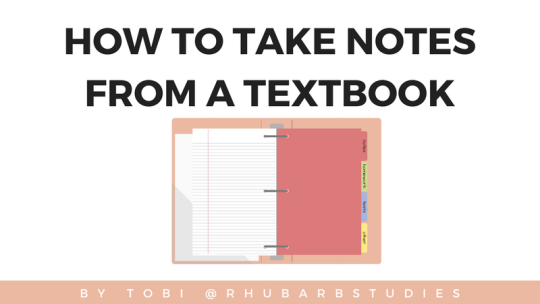Psychology major. Aspiring bullet journalist. Minimalism 💕.
Don't wanna be here? Send us removal request.
Text

Studying all weekend for my first Social Psych exam. Fun colored highlighters always make it better 💕
5 notes
·
View notes
Text
university is just. it's you, your laptop and your water bottle against the world
148K notes
·
View notes
Text
college is like *gets an email* *walks somewhere* *realizes u left ur water bottle at home* *walks somewhere* *walks somewhere* *gets an email* *gets an email*
142K notes
·
View notes
Text
important facts about community college
- just as much of a quality education as you would get at a state school or uni
- much more affordable
- usually more night classes that make going to school while working and/or taking care of kids much easier
- transfer students actually have a higher graduation rate than students who have been at a university all 4 years
- there is nothing wrong with aspiring to go to a community college
- there is nothing wrong with being proud of attending a community college
- there is absolutely nothing wrong with community college
157K notes
·
View notes
Text
When you’re learning to be a therapist, every insecurity you’ve ever had will get dragged up at some point.
80 notes
·
View notes
Text
So today is day 2 of senior year and I’m already so stressed out that I ended up dropping literally half of my classes 🙃
3 notes
·
View notes
Text


Last first day of classes! Bring it on, Fall 2019
9 notes
·
View notes
Text




So I started up my bujo again in honor of the new semester and attempting to get my life together. And I’m actually really proud of these spreads for September. Here���s to actually following them!
7 notes
·
View notes
Text
Me while classes are in session: wow I am so tired and ready for classes to be over this is the worst time of my entire life
Me when classes are not in session: so what exactly am I supposed to do with myself
18K notes
·
View notes
Text
advice for college freshmen:
tolkien your essays; hemingway your emails
essays are tangents and rabbit holes and diversions, woven together with lots of unnecessary descriptive words to demonstrate a proficient understanding of a subject you were meant to research in more depth but did not, in place of other pursuits, or could not, because you chose your subject poorly, and so now you must flesh out an arduous ten-page research paper and convince your scrutinizing instructor that you are well-versed in the topic at hand.
emails are blunt. say what you mean. be specific. end it quickly.
34K notes
·
View notes
Text
I cannot stress this enough- Build a routine. Build Habits. Wake up every day and get used to being productive, one day at a time. Do this for long enough and eventually you’ll be at your goal without even realising it.
209K notes
·
View notes
Photo

Today’s quote of the day!
A basic simple quote for your day today. You can do this! The fact it’s on a yellow background makes it even better and gives off so much positivity.
Have a lovely day everyone !!! You can do it !!!
6K notes
·
View notes
Photo

Still figuring out what works for me. I really like this though
0 notes
Text

Taking textbook notes is a chore. It’s tedious and boring and sometimes challenging, but hopefully these tips will help you improve your skill and shorten the time it takes you to do textbook notes!
Give yourself time: Realistically, you can’t knock out 30 pages of notes in 20 minutes. Take your time with textbook notes so they’re a good studying tool in the future. The general rule is to take how many pages you have to do and multiply it by 5: that’s how many minutes it’ll take you to do the notes.
Also, divide you notes up into manageable chunks to increase your productivity. I am personally a huge fan of using pomodoro timers, and I adjust the intervals for however long I need to.
Skim before you start taking notes: If time is an issue, don’t read your 40 page in depth before even picking up a pen, but make sure you know what you’re reading about by skimming a bit ahead of your notes. Read over section titles, and look at charts, maps, or graphs. Writing and highlighting as you read the chapter for the first time isn’t effective because you don’t know if a sentence will be important or not, so make sure you’re reading a paragraph or section in advance before writing.
Use the format they give you in the book to help take your notes: In a lot of textbooks, there will be a mini outline before the chapter itself that shows all the headings and subheadings. Those will be your guidelines! I find this super helpful because long chapters can be daunting to go into without any structure. If you don’t have one of those, use the headings and subheadings provided for you. If you haven’t already been doing this, it will help you so much.
Read actively: It’s so easy to “read” a textbook without digesting any information, but that is the last thing you want to do. Not only does it make taking notes a million times harder, but you’ll be lost in class discussions because you didn’t understand the reading. To keep from passively reading, highlight, underline, star any important information in the book itself.
Have a color coding system for highlighting or underlining and write down a key somewhere (here’s a few that you can adjust for your needs: x,x)
Use sticky notes or tabs to mark any questions or important points to come back to
Summarize important information and paraphrase: When taking the actual notes, don’t copy down full sentences word for word. Not only does writing full sentences waste a lot of time, it’s not an effective way to learn. If you can paraphrase the information, then you understand it. It’s also easier to study notes which are in your own words instead of textbook academia writing.
Be selective: You shouldn’t be writing down every fact that comes up in your textbook. If a fact ties into the bigger topic and provides evidence, then it’s probably something to keep, but you don’t need every piece of supplemental information (but do make sure you always write down the vocab). Learn your teacher’s testing style to help you decide what to write down. Could this be on the quiz/test? If the answer is yes, make sure you write it down.
Learn to abbreviate: Just like writing full sentences, writing out full words will waste time. Implement some shortenings (make sure to use ones that you’ll understand later!) into your notes. Some common ones are: b/c=because, gov=government, w/o=without, and here’s a great list of a ton of examples of abbreviations and shortenings.
Answer margin and review questions: A lot of textbooks have margin questions on every page or so that sum up what’s really important about that information. Make sure not to skip them because they’re really helpful for understanding. Write them down and answer them clearly in your notes. Most textbooks also have review questions after the chapter that check for reading comprehension, so make sure to answer those because they’ll show you if you really understood the chapter.
Don’t skip over visual sources: Maps, diagrams, illustrations, charts, and any other visuals in textbooks are so helpful. If you’re a visual learner, these things will be so essential to you and how you understand what you’re reading. Charts, tables, and diagrams sometimes also summarize information, so if you’re a visual learner it might benefit you to copy those down instead of writing it out.
Add visuals if it’ll help you: As said above, copying down charts, tables, illustrations, or diagrams can be super helpful for visual learners. They’re clear and concise, so pay attention to them.
Write your notes in a way that’s effective and makes sense to you: Mindmaps, Cornell notes, or plain outline notes are all really good forms of notetaking. Find which one works best for you to understand them and which one is most effective for your class, and use it (stuff on mindmaps and cornell notes).
Combine your class and textbook notes: If you rewrite your class notes, add in information you think is relevant from your textbook notes. Mark anything both your book and teacher said were important–you don’t want to forget any of that. If you don’t rewrite class notes, then put stars next to anything repeated.
18K notes
·
View notes
Photo


This week’s spread is finally done ✅
0 notes


